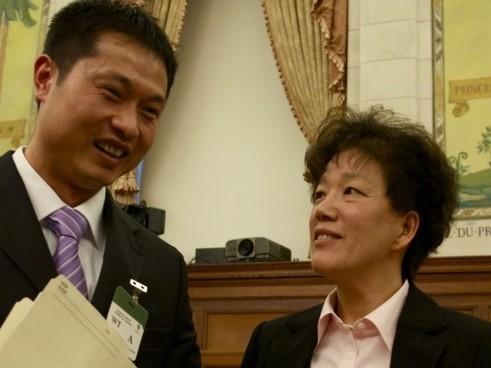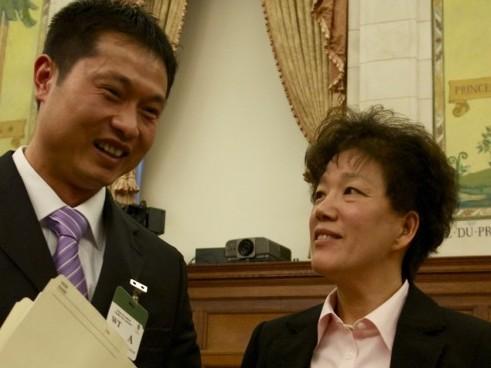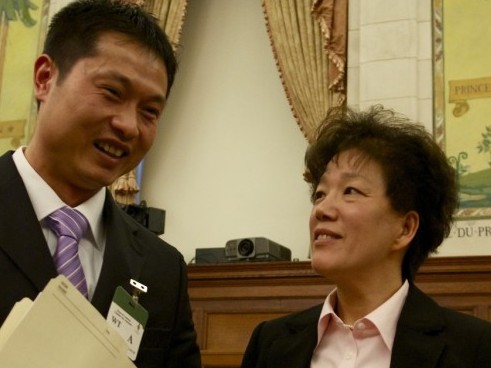OTTAWA—David Chen’s Lucky Moose grocery store in Toronto isn’t a monolith of the grocery business, but his influence has reached the highest levels of the Canadian government.
Chen appeared before Parliament’s Standing Committee on Justice and Human Rights on Tuesday to outline the struggle he faced when his efforts to catch a shoplifter turned him into a kidnapper.
The committee is reviewing Bill C-26, which would amend the criminal code to open up and simplify provisions for citizen’s arrest.
Chi-Kun Shi, a lawyer who has lobbied for amendments to the law, told the committee the changes would eliminate some of the restrictions that make current citizen’s arrest laws unworkable, but said the bill could go even further.
Those restrictions, namely the requirement that a citizen’s arrest be made while a crime is in progress, are why Chen’s arrest of a serial shoplifter at his store resulted in him getting charged with assault and forcible confinement.
Chen arrested the shoplifter an hour after the theft.
“Under the criminal code, even with this proposed amendment, the stakes are very high for store owners who exercise their right to citizen’s arrest. The benefits, on the other hand, are quite limited,” said Shi.







